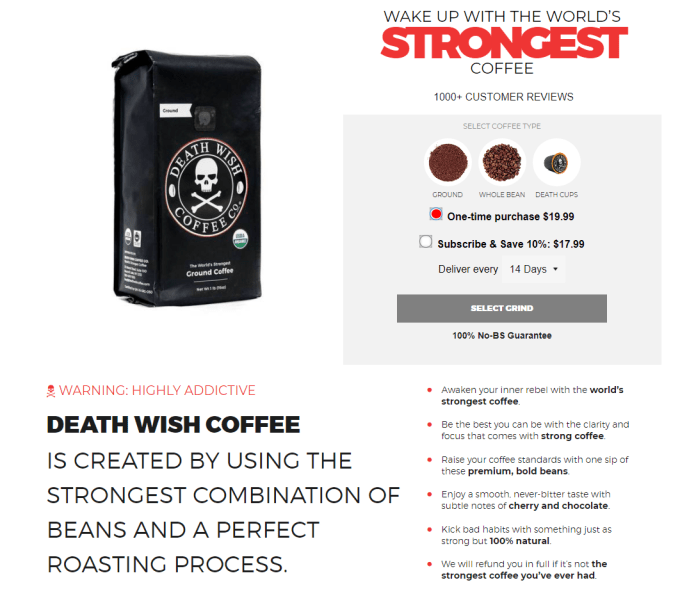Brands are emotions made physical. The clothes we wear, the media we consume, the devices we use — all signal not only to others what we value and see in ourselves, they also are a way to construct our very identities. Experimenting to deepen that bond has been at the core of the marketing profession for a century; its origins rooted in Freudian psychoanalysis.
There had always been one critical limitation, though: Marketers had to appeal to the masses. Radio, television and print media allowed brands to deliver only one message to everyone, no matter if their product conferred luxury or smart cost-consciousness.
On the internet, the masses have been shattered into ever smaller shards, shifting that marketing calculus toward targeted audiences and social network interest groups. Today, niche brands, large corporations and every business in between are reaching ever-narrower audiences.
Yet, advertising and social networks are competitive marketplaces. Over time, prices to reach niche audiences rise, and strategies that once worked become unviable. In 2021, these perpetual challenges are joined by two new factors: a fresh influx of new e-commerce brands and changing privacy policies on third-party platforms.
Klaviyo benefits from these secular trends. While the cost or difficulty of acquiring new customers may increase, as we looked at in the second part of this EC-1, the cost of emailing an existing one remains much the same. Marketers who become expert at personalization, especially for existing customers through owned marketing platforms like email, will hold an edge over their competitors. It’s no longer about marketing to narrow slices of audiences — it’s about building an emotional bond with an audience of one.
To a booming economy, now ad inflation
While 2020 was a banner year for e-commerce in the wake of the COVID-19 pandemic, the early months of 2021 have brought about a new problem: Customer acquisition costs are rising, sometimes to a worrying degree. For instance, one company interviewed by TechCrunch that did not wish to be named said it has seen its return on investment for Facebook ads fall by nearly half in the first months of 2021. Such inflation has also been predicted by firms like ECI Media Management.
There are two possible reasons for this increase. First, an unprecedented number of companies are moving online, spurred by COVID-19 and worldwide lockdowns.

In a sense, COVID-19 came at the right time in the evolution of e-commerce. Contrary to the world most tech blog readers live in — influenced by Amazon and tech startups from Bonobos to HelloFresh — only about a quarter of all commerce takes place online, according to market analyst PipeCandy. If the pandemic had happened a decade ago, brick-and-mortar businesses may have struggled to master the technical skills needed to move online quickly.
But building an online storefront is no longer a challenge. “You can get an online store set up in 30 minutes or less; in some cases for free or $50. That’s a difference I’ve seen in the past three years versus, say, 10 years ago where it was more cumbersome,” says Steve Deckert, the director of business development for WooCommerce, which is one of Shopify’s main competitors.

Second, along with a flood of businesses moving online, platform companies are acting to increase user privacy. These changes include Apple’s pullback on IDFA, Google’s replacement of third-party cookies with a more privacy-oriented technology called FLoC, and Facebook’s recent move to limit use of data from outside the social network, likely spurred by Apple’s changes in iOS 14.
Klaviyo doesn’t require data collected from platforms, so it’s largely unaffected by platform privacy changes. Andrew Bialecki, one of Klaviyo’s co-founders, says that the company made a conscious decision to only use first-party data and has long operated under the assumption that third-party data would become more limited over time.
“When we look at the changes browsers are making in cookies, what Apple’s rolling out — that’s kind of in line with what we expected,” says Bialecki.
While the effect of these privacy changes can’t be measured yet, many marketers worry that less data will result in less accurate targeting. In turn, less accurate targeting raises costs for any brand that has come to rely on precision ad targeting to reduce acquisition costs — a group that essentially includes everyone but the largest brands.
Whatever it takes, get an email
If marketers’ worst fears come true, targeting on platforms — be they social networks or a sales platform like Amazon — won’t continue improving in performance in coming years. The trend would thus shift toward a heavier reliance on first-party data, collected on the brand’s storefront, to send personalized communication to customers after the first sale and thus increase repeat-customer rates and the return on investment for the initial acquisition.
Collection of first-party data doesn’t necessarily start at sale, however.
Once a brand gets a customer to its online storefront — whether through an ad, an influencer campaign or some other method — the first goal is usually to collect an email. (Some prefer a phone number; Klaviyo also offers SMS messaging.)
Klaviyo, along with a number of other companies, offers responsive popups that appear after specific conditions have been met, such as time spent on the site or clicking certain links. An email can also be recorded when the customer tries to check out. Today, these pop-ups and email sign-ups can be seen on nearly every e-commerce store.
There’s a simple reason for collecting an email first: The vast majority of new customers on an e-commerce website won’t make a purchase. Even among those who add items for purchase, around three-quarters abandon their cart. Collecting an email address allows the brand to try again later rather than giving up on a prospective customer.
The storefront is also where brands set the tone and aesthetic for all future communication. Death Wish Coffee’s website, for instance, introduces an edgy, grunge aesthetic that carries through the company’s social presence, emails, podcasts and other customer communications.

Maximize the personalization, maximize the profit
As noted in part two of this EC-1, Klaviyo has dozens of competitors. Nearly all of them can offer some method of collecting emails and sending out campaigns or conditional responses, such as the emails that go out to customers who abandon their cart.
Only a narrow subset of those competitors, however, pull in data on their own rather than through an integration with another service, and such data is frequently incomplete. Klaviyo is built around the idea of collecting every signal and action transmitted by a customer — from their location, to how they entered the store, to which items they viewed and for how long. After the customer has made a purchase, Klaviyo offers more predictive data, such as their presumed gender and duration between orders.
This raw and aggregated data is the starting point for personalization. A campaign for a new fall line of sweaters, for instance, might use segments that separate men and women, high and low purchase rates, and people who have or haven’t opened previous emails. Each of these segments would receive a different email, with marketers changing everything from the subject line to the discount offered to maximize performance.
Klaviyo’s advantages are in the breadth of data it collects as well as the speed and efficiency of using its tools to personalize messaging quickly and efficiently, says Will Critcher, Death Wish Coffee’s director of e-commerce. “Their flows, being able to manage it, control with conditional splits, see how each element of each email works, see how things work in that flow, and being able to create and append properties to that flow just allows you to more efficiently create much better messaging over and over because you know exactly what works and doesn’t work.”

Experienced marketers learn to think about every product in terms of the data they have about their audience and personalize accordingly.
Darin Hager, an email marketing manager for Adjust Media, offers an example of a company releasing a new pair of shorts during the winter. “You wouldn’t want to send an email to someone in the north of Canada about shorts with a one-inch rise. So I created an email just for people in Texas and Florida and sent them this email about supershort shorts. You’re not going to wear those in Boston,” says Hager. “It just helps to tailor the message to the right audience.”

In the coming years, e-commerce entrepreneurs should be on the lookout for ways to extend personalization into other areas — whether that’s their storefront, social media presence or other methods of customer communication that emerge.
Emotional and not just transactional
While segmenting and targeting the right groups of customers is key to messaging, authenticity and convincing customers that a brand is run by living, breathing humans is key to making that connection emotional — rather than just transactional.
Emotional communication can take as many forms as there are brands. Critcher points out that Klaviyo itself offers a good example of how to look authentic and caring. “You can certainly tell it’s intentional, and they do a damn good job of it. If you were to look at them as a marketing company, they’ve done a pretty good job of that,” he says.
Notably, Klaviyo has done very little paid acquisition, growing mainly through word of mouth and direct communication with customers. The company’s marketing efforts began modestly in 2015, when Alexandra Edelstein, one of its early employees, started with writing up help documents based on the conversations she was having with customers.
Those conversations, and the documentation that followed, have set the tone since. Many of the company’s recent hires are working on Klaviyo Academy, which offers in-depth instruction and certifications. The company also has its own conference and keeps its event calendar packed with classes and showcases for brands that use it. Offering a platform for customers to market themselves has worked out well for Klaviyo, Critcher believes — companies participating in Klaviyo’s Live From Your Laptop series often come away more committed than before.
Know your customer
Live events and extensive help documentation are table stakes for most SaaS providers. But Klaviyo does seem to have internalized putting customers first to an unusual degree.
Edelstein says that even in the early, disorganized days when she joined, the founders pushed all of the employees to talk to customers as much as possible, and the smallest customers were valued as much as the largest. “The first customer I remember talking to was a late 60s, maybe early 70s woman named Rose who had a quilting company, and she was trying to use Klaviyo to send out quilting patterns to her customers. That’s what shaped my customer-first attitude, knowing that a lot of customers are like Rose; they can’t separate their business from their life, and they’re just doing what they can to keep their business running,” Edelstein recalls.
Regular interaction with customers is now a requirement for all employees, even those in technical roles.

New members of the company’s product team, for example, follow the same routine as all other new hires: Support rotations and building a store that uses Klaviyo. Later, each employee is expected to keep processing support tickets and talk about their interactions with customers during team meetings. “My team, in a typical quarter, will have 150+ of those customer conversations,” Klaviyo advisor and recently departed chief product officer Conor O’Mahony says.
Bialecki says entrepreneurs trying to build a customer-first organization often underestimate the impact of small decisions they make around culture, product and hires. Constant interaction with customers is required not just to help customers, but to make sure employees are exposed to as much information as possible.
“The ability to learn things in depth and quickly is the number one skill that has made us successful,” says Bialecki. “Internally, we call it curiosity, but it’s also becoming an expert quickly. For whatever domain you’re working in, you need to understand it down to the studs. How will you solve it in a way that gives you an unfair advantage? There’s an unreasonable number of things you need to be good at learning, and there’s no shortcut.”
One more aspect that may help shed light on Klaviyo’s culture and the way it communicates with customers is its Boston location.
“There might be an arrogance in SV, like we’re the center of the tech universe; we move fast and break things; we make a dent in the universe,” says Jenny Dearborn, who was chief talent officer at SAP before moving to a chief people officer role at Klaviyo. She still lives in Silicon Valley, but says her Boston colleagues are noticeably different. “The vibe with a Boston-based tech company feels like there’s an innocence to it … In a Silicon Valley company, you don’t take the time to step back and say hold on, we built something amazing. [In Boston] that arrogant edge is not present.”
These deep bonds within its teams have translated to strong bonds with its customers, allowing Klaviyo to help personalize marketing to create the sorts of emotional connections e-commerce stores need to compete this decade. It’s a key model more startups need to learn, but it’s not the only tutorial the company has to offer. For a few more lessons, we turn to the fourth and final part of this EC-1.
Klaviyo EC-1 Table of Contents
- Introduction
- Part 1: Origin story
- Part 2: Business and growth
- Part 3: Dynamics of e-commerce marketing
- Part 4: Lessons on startup growth
Also check out other EC-1s on Extra Crunch.































Comment